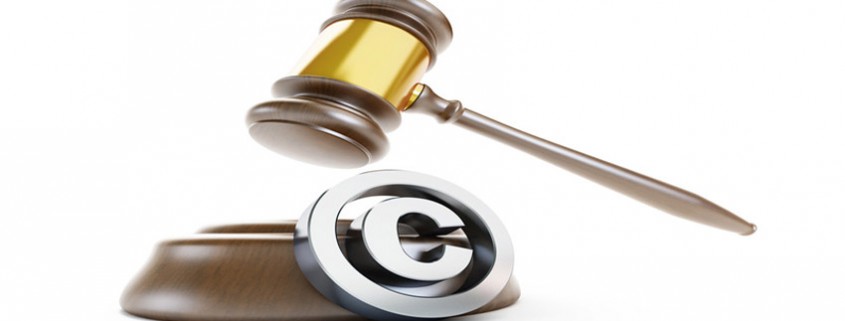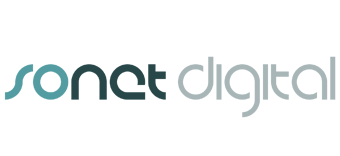The Importance of Keeping Your Copyright Details Current

Why Update Your Copyright Information?
This article was updated in 2023 to include date range.
With the start of a new year, it’s essential to review and update various elements of your website. A frequently overlooked detail is the copyright date, typically found at the bottom of web pages and on the dedicated copyright page.
Role of Copyright Notices on Websites
Most websites we encounter have a copyright notice at the footer. But what purpose does it serve? In essence, it safeguards your rights as the owner of the content, logos, images, and other elements on your site. The internet is rife with content theft. By asserting your copyright, you provide a layer of protection, especially if you need to take legal action to remove your pilfered content from another site.
While it’s not mandatory to have a separate page detailing your copyright, (it is for a privacy notice) some websites opt for this, especially if their copyright details are more intricate. For instance, there might be shared copyrights for specific content, like an author retaining rights to an article but also granting shared rights to the website hosting it.
- How often should I change my website’s copyright date?: Using a date range from the first year of publication, then at the beginning of every year.
- Best practices for displaying website copyright: In the footer of the site as a link to a dedicated copyright page.
Should the Copyright Date Start with the Initial Date of Publication?
Yes, the copyright date on a website typically starts with the first date of publication. When you see a copyright notice on a website that includes a range of years (e.g., “© 2000-2023”), it indicates that the site has been in operation and publishing content over that span of time. The starting year represents the year the website or its content was first published, and the ending year represents the current year or the last year of significant updates.
For example, if a website was launched and began publishing content in 2010 and has been updated continuously through 2015, the copyright notice would read “© 2010-2023.”
However, if the content on the site was static and there were no significant updates after its initial launch in 2010, then the copyright notice might just read “© 2010.”
It’s essential to update the copyright notice to reflect the current year if there are ongoing updates or new content additions to show visitors that the site is actively maintained.
Why You Should Update Your Copyright Year
Whilst anything that appears on your site is instantly copyrighted even if the year displayed is outdated or not, there are still plenty of reasons you should keep it updated. Most have to do with visitor trust and the image the site portrays of you as its Webmaster.
If a visitor were to notice that a website was displaying last year’s date, they are going to assume the website is outdated or the owner is not bothered enough to change it. This is not good for building brand or trust with visitors and will inevitably affect the engagement and conversions of the site.
- Build Trust – When your website reflects accurate and current information it helps to build a good level of trust for those that visit it.
- Up To Speed – By displaying the correct copyright year it shows your visitors that you are on the ball. This subconsciously raises visitor expectations that your site is on top of the latest developments in your niche, as well as the world in general.
- You Care – By making this change quickly each and every year it shows your visitors that your website matters to you and that you care greatly about it. If you are slow to update, you risk looking disinterested, out of touch or lazy, which are never good looks!
Adding this one simple task to your New Year to-do list will ensure that you start your year on a positive note, displaying to your visitors that you’re paying attention, interested in the site and most importantly, on top of your game.






U.S. Copyright Law states that the Copyright Notice should show the year of “first publication”.
Updating the date after the fact would probably be construed as fraud.
I do not update my Copyright notices after first publication.
Hi Ann,
And should be shown in a visible place such as a popup etc., or can it be in the footer as a link to a page about copyright?
I don’t trust a current copyright as there are so many fake news sites that just spring up to counteract the truth usually … so if I don’t see an older copyright date , I won’t read the article .
Hi Shannon, I disagree, a current copyright typically indicates credibility. Having the date range won;’t make it more or less so. Nonetheless, it’s always wise to verify the facts in any news story.
Copyright should always state at least the first date of publication. You can add additional dates of revision or state a range if you want, but the point of the copyright notice is to establish the earliest date you put the content into a fixed form. Unfortunately, every web marketer out there (apparently including the author of this article) thinks copyright means “last updated.” The risk is that if there is a dispute, and someone stole your content from two years ago, you have essentially stated to the world that you have no claim of copyright on that content prior to the current year. At that stage, the thief has not just a legitimate defense (Yes, I know this person has similar content, but they came up with it after I did), they also have grounds to countersue (you stole my content, not the other way around). Now, in the end you may be able to establish the correct date and history, but it will take more work on your part and a tolerant court.
Absolutely agreed. In actual fact we always have our copyright and that of our clients with the date range of website publication to current date. This article has been updated to reflect this.